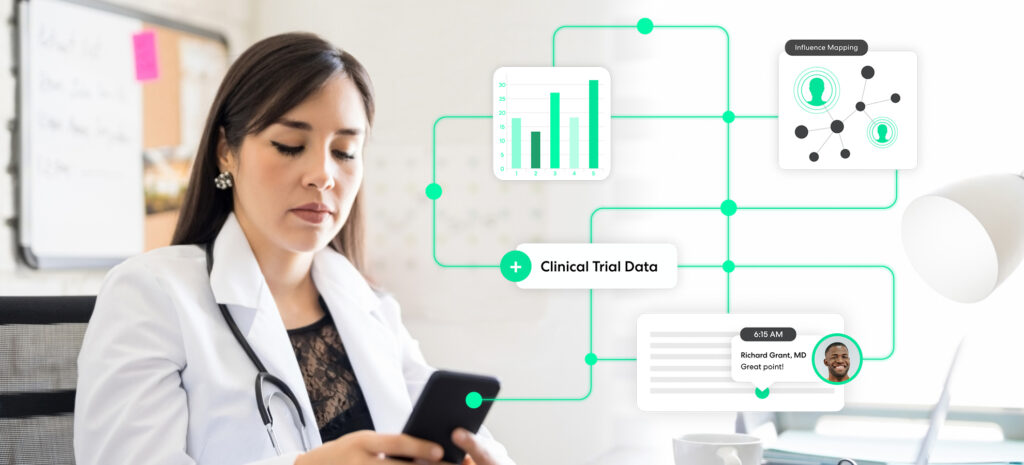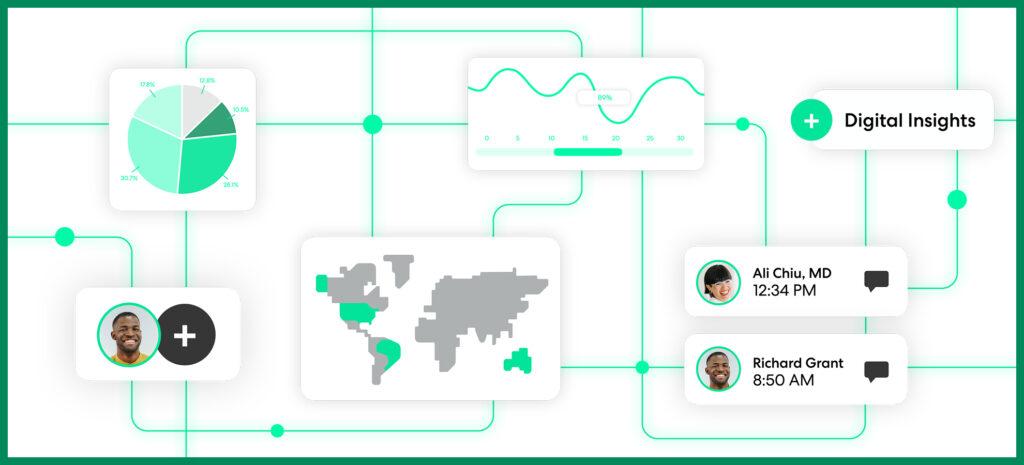Stay informed with our regular life science industry news trend tracker series, presenting industry news in a quick, scannable format. Check out recent top stories and explore additional resources to help you respond.
AI adoption in healthcare is stagnant
Digital health executives revealed that demanding regulatory requirements and fragmented healthcare system procurement processes hamper clinical AI adoption. These insights were gleaned from a study indicating AI and other digital health technologies could improve patient experience and outcomes while reducing healthcare costs if integrated into clinical care, but adoption has been slow.
“While some AI technologies have made it into the clinic, most of these have come from large conglomerates, like Google or Amazon,” said Azizi Seixas, Ph.D., interim chair of the Department of Informatics and Health Data Science at Miller School of Medicine and senior author on the study. “Early-stage startup companies, which produce much of the innovation, are hardly in the mix, and we wanted to understand the barriers they face and how we might help overcome them.”
As pharma continues to examine how to use AI across drug development, the industry’s actions and decisions may impact the adoption of AI technology throughout the healthcare ecosystem.
Learn more
Tackling rare diseases
The Bespoke Gene Therapy Consortium announced it would begin to develop gene therapies for eight carefully chosen diseases over the next year. Ideally, it will begin successful rare disease clinical trials late next year and see results 12 to 18 months after that. The diseases were selected as treatment candidates due to a higher chance of quick success.
The consortium, led by the Foundation for the National Institutes of Health, a nonprofit wing of the federal agency, helped to raise $97 million to advance the treatments. The work is particularly urgent now because funding in the biotechnology industry has slowed since the early days of the coronavirus pandemic, and some companies have stopped pursuing treatments for rare diseases.
A recent study shows that a lack of treatment for a rare disease is associated with a 21.2% increase in total costs per patient per year. That places a significant burden on the healthcare system. While rare diseases impact a small population, the cost to society is staggering – the estimated societal cost in the US for all 7,000 known rare diseases is an estimated $7.2-$8.6 trillion annually.
Learn more
- Finding orphan drug experts and investigators
- How social monitoring can support orphan drug development
CVS shutters clinical trials unit
CVS will close its Clinical Trial Services unit in stages, aiming to close the unit fully by December 2024. The business launched in May 2021 during the pandemic to support COVID vaccine and treatment trials and eventually non-COVID research. CVS was the first in a wave of major retailers that moved to establish clinical trial service divisions, which now include Walgreens, Walmart, and Kroger.
These companies say their nationwide infrastructure and reams of patient data allow them to connect with a broad swath of patients, helping pharmaceutical companies to reach a larger and more diverse patient pool. As a result, drugmakers can fill trials more quickly with targeted recruitment campaigns and save costs overall while ameliorating the long-running problem of bias in trial populations.
Learn more
- How technology supports diversity and inclusion in clinical trials
- Guide to how to increase enrollment in clinical trials
Join your peers! Get more of the latest news and industry trends in the Within3 insights newsletter.






